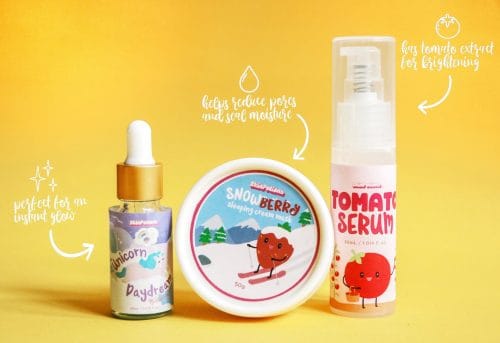
Essay: Going Green: Exploring Organic Facial Skincare Brands in the Philippines
Introduction:
In recent years, there has been a significant shift in consumer preferences towards sustainable and natural products, particularly in the skincare industry. This shift is driven by increased awareness of the environmental impact of conventional skincare products and a growing desire for safer, more eco-friendly alternatives. In the Philippines, this trend is mirrored by the emergence of numerous organic facial skincare brands that prioritize natural ingredients and sustainable practices. In this article, we will delve into the world of organic skincare, exploring the key characteristics of organic products, highlighting top organic skincare brands in the Philippines, and discussing the benefits of incorporating organic skincare into your routine.
The Rise of Organic Skincare in the Philippines:
The Philippines, like many other countries, has seen a surge in demand for organic skincare products. This can be attributed to several factors, including a growing awareness of the harmful effects of synthetic chemicals on the skin and the environment, as well as an increasing interest in adopting a more sustainable lifestyle. As consumers become more conscious of the ingredients in their skincare products, they are seeking out brands that offer natural, plant-based alternatives.
Key Characteristics of Organic Skincare:
Organic skincare products are defined by their use of natural, plant-based ingredients and their commitment to avoiding synthetic chemicals and harmful additives. These products are often formulated with ingredients such as botanical extracts, essential oils, and natural antioxidants, which are known for their nourishing and rejuvenating properties. Additionally, organic skincare brands prioritize sustainability and eco-friendly practices, from sourcing ingredients ethically to using recyclable or biodegradable packaging.
Top Organic Facial Skincare Brands in the Philippines:
In the Philippines, there are several organic skincare brands that have gained popularity for their commitment to quality, sustainability, and effectiveness. One example is Human Nature, a local brand known for its range of organic skincare products made with natural ingredients sourced from local farmers. Another notable brand is VMV Hypoallergenics, which offers a wide selection of hypoallergenic and organic skincare products suitable for sensitive skin. These brands have garnered recognition both locally and internationally for their dedication to ethical and sustainable practices.
Product Categories in Organic Skincare:
Organic skincare encompasses a wide range of product categories, including cleansers, toners, serums, moisturizers, sunscreens, and face masks. Each of these categories offers a variety of options formulated with natural ingredients to address specific skincare concerns. For example, organic cleansers may contain ingredients like coconut oil or tea tree oil, which gently cleanse the skin without stripping away its natural oils. Similarly, organic moisturizers often contain hydrating ingredients like hyaluronic acid or shea butter, which nourish and protect the skin.
Eco-Friendly Packaging and Sustainable Practices:
In addition to using natural and sustainable ingredients, many organic skincare brands also prioritize eco-friendly packaging and sustainable practices. This includes using recyclable or biodegradable materials for packaging, minimizing waste during production, and supporting fair trade and ethical sourcing practices. By opting for products with eco-friendly packaging, consumers can reduce their environmental footprint and support brands that are committed to sustainability.
DIY Skincare: Creating Homemade Organic Treatments:
For those who prefer a more hands-on approach to skincare, DIY skincare offers a natural and cost-effective alternative to store-bought products. Common ingredients used in DIY skincare include natural oils, fruits, vegetables, and herbs, which can be easily sourced from local markets or grown at home. For example, a homemade face mask made with ingredients like honey, yogurt, and turmeric can help hydrate the skin and reduce inflammation, while a DIY sugar scrub can exfoliate and soften the skin.
Expert Tips for Incorporating Organic Skincare:
When incorporating organic skincare into your routine, it’s essential to understand how to read labels and identify key ingredients. Look for products that are certified organic by reputable organizations like the Soil Association or COSMOS, and avoid products that contain synthetic fragrances, parabens, or sulfates. Additionally, patch-testing new products and being consistent with your skincare routine are crucial for achieving optimal results.
Conclusion:
In conclusion, the rise of organic skincare in the Philippines reflects a growing awareness of the importance of natural, sustainable, and eco-friendly products. By prioritizing organic skincare brands that use natural ingredients and sustainable practices, consumers can not only improve the health and appearance of their skin but also contribute to a healthier planet. Whether you’re looking for cleansers, moisturizers, or specialty treatments, there are plenty of organic skincare options available in the Philippines to suit every skin type and concern. Embrace the green beauty movement and discover the benefits of organic skincare for yourself.
No Comments Yet